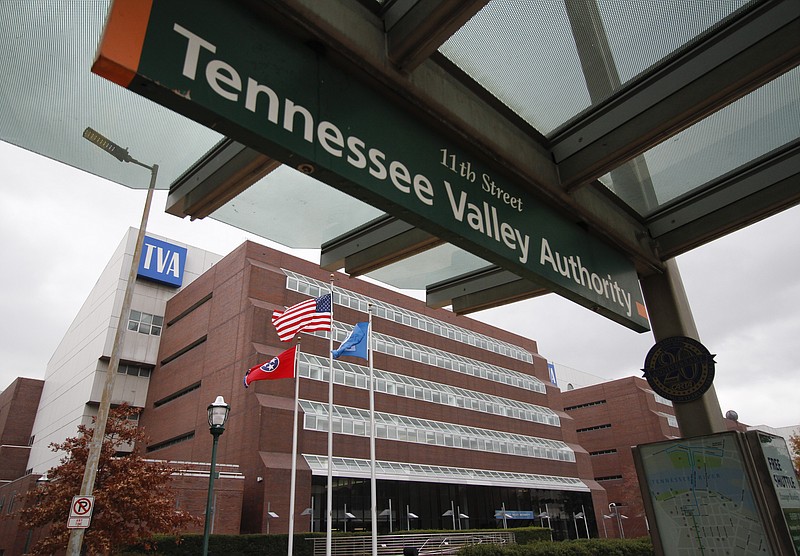For the first time since the Tennessee Valley Authority added a monthly fuel cost adjustment to its power bills nearly a decade ago, the Tennessee Valley Authority is giving its bigger, direct-served industrial customers a better fuel price than other TVA customers.
Next month, nearly all TVA customers will get a slight cut in the price of electricity due to a drop in the November fuel cost allowance. But industrial customers served directly by TVA will pay 3.7 percent less in fuel expenses than other TVA customers who buy their power through local power companies.
In Chattanooga, EPB bills will be priced an average 22 cents less than this month because of lower costs for natural gas and purchased power by TVA. EPB said the average bill for a household using 1,471 kilowatthours in November will be $155.52, down a fraction from the $155.74 charge this month.
TVA spokesman Scott Brooks, who said the decline was due to cheaper gas prices, said TVA rates including fuel costs are down 5 percent from the average of the previous three years.
But because of a 3.5 percent base rate increase by EPB in July and a 2 percent increase in TVA wholesale rates on Oct. 1, electricity prices will be $10.15 higher in November than a year ago when the average household using 1,441 kwh paid $144.59.
Industrial customers will enjoy a bigger drop in power rates next month due to a bigger drop in the fuel cost adjustment, reflecting a change adopted by the TVA board in August following a year-long reassessment of rates based upon a new cost of service study.
TVA President Bill Johnson said the bigger drop in rates for major industrial customers keeps with TVA's financial guiding principle of moving toward more cost-based rates.
"This is lining up actual costs with what we charge," Johnson said. "As part of the cost of service study we did, we learned that industrial customers were paying for some fuel that they were not using. This better aligns our prices with our costs."
Johnson said over the past couple of years TVA has improved its competitive standing for its industrial rates compared with other utilities.
"Our rates are more competitive and we are working to do even better in the future, but competition is not why we went to these two fuel rates," Johnson said. "It was based upon our costs of service."
Pete Mattheis, an attorney for Nucor Steel and chairman of the Tennessee Valley Industrial Committee, which represents TVA's direct-served industries, said big manufacturers have less line losses along transmission lines and can be served more cheaply than delivering power across a bigger region to many smaller users through a series of transformers.
"We think these changes, which we urged TVA to adopt for years, are good and are a much better reflection of actual costs," Mattheis said. "TVA is getting more competitive with its rates, although we continue to believe they are not as competitive as we wish they were."
Contact Dave Flessner at dflessner@timesfreepress.com or at 757-6340.
